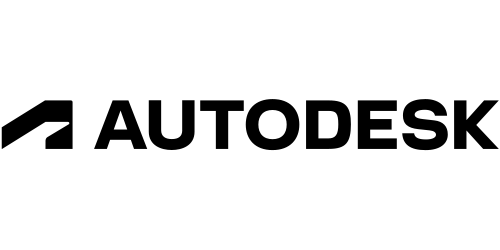
Autodesk is a global leader in 3D design, engineering, and entertainment software. With a commitment to sustainability and innovation, they empower customers to design and make a better world, offering a diverse portfolio of software tools for various industries.
COMPANY LINKS
TAGS
- CEI |
- CEO Action |
- DEI |
- Open Secrets |
- Pride Sponsor
Updated 1 year ago
How woke is Autodesk?
Introduction
Autodesk, Inc. has long been a 3D design, engineering, and entertainment software leader. But recent years show Autodesk moving beyond just tech innovation and diving head-first into the social justice scene. Through its various progressive causes and policies, Autodesk has become a prominent voice in the world of woke capitalism.
This review examines how Autodesk’s financial contributions, DEI (Diversity, Equity, and Inclusion) policies, mandatory training sessions, support for LGBTQ+ causes, and woke-focused marketing impact its brand and customer perception.
Financial Contributions to Progressive Causes
The Autodesk Foundation dedicates resources to big-ticket issues like climate change, social equity, and sustainability. Its Autodesk Foundation Impact Report proudly highlights contributions to causes that lean heavily progressive. According to the report, “Autodesk Foundation dedicates resources to initiatives focused on climate change, social equity, and sustainability, supporting efforts that align with a vision for systemic change in society.”
And, if that wasn’t enough to clarify their stance, Autodesk confirms, “Our commitment to creating a better world drives our philanthropy, prioritizing projects that impact climate and justice-related challenges on a global scale.” Autodesk’s contributions in this area might be applauded by climate advocates, but they can come across as politicising environmental issues.
Prioritization of DEI Policies
Diversity, Equity, and Inclusion are now the cornerstones of Autodesk’s workplace culture. They’ve woven DEI so deeply into their operations that it’s essentially part of the company’s DNA. In fact, Autodesk’s recent DEI Strategy Update states, “The DEI Strategy Update outlines goals that address systemic challenges within Autodesk’s culture, reaffirming our commitment to a balanced and inclusive workplace.”
And, outlets like Engineering.com can’t say enough about how Autodesk “promotes equitable representation across all levels of the organisation”. While that all sounds good on paper, Autodesk’s DEI policies may undermine the traditional idea of hiring based on merit. A hyper-focus on identity categories pigeonholes individuals, which contradicts Autodesk’s goal of fostering a truly inclusive workspace.
Mandatory Training Sessions
Like many companies in the woke era, Autodesk mandates training sessions on topics like unconscious bias. The company wants these sessions to build understanding and empathy, and they assert that “Autodesk’s training initiatives tackle unconscious bias and implicit prejudice, aiming to foster understanding and empathy in the workplace.”
However, it’s worth noting that many of these sessions borrow ideas from Critical Race Theory, which tends to interpret societal structures as fundamentally racialised. Mandatory training on sensitive topics can be a double-edged sword. While intended to improve the workplace, these programs push a narrative that doesn’t align with general values. Ideas like “implicit bias” assume everyone carries hidden prejudice, which comes off as accusatory rather than inclusive.
Support for LGBTQ+ Initiatives
Autodesk’s support for LGBTQ+ rights is extensive. Through the Autodesk Pride Network, the company celebrates LGBTQ+ diversity year-round. It also provides specific LGBTQ+ healthcare benefits, ensuring LGBTQ+ employees feel valued.
Autodesk explains, “LGBTQ+ benefits and resources underscore our dedication to inclusive healthcare and wellness policies, aiming to ensure every employee feels valued and supported”. As the company takes a strong stance, some employees with personal or religious beliefs might feel pressured to align with policies they don’t support personally. Autodesk’s extensive focus on LGBTQ+ initiatives seems less about simple inclusion and more like a clear stance in an activist agenda.
Marketing and Branding
Autodesk has fully embraced social justice messaging in its branding. From its brand strategy page to its general “voice,” the company puts inclusivity front and centre. Autodesk’s mission is increasingly aimed at telling “inclusive stories” and connecting technology to broader social causes.
Another notable point from Autodesk is that “in our messaging, we focus on promoting inclusive narratives that connect technology with social change.” With a brand voice so closely tied to social justice, some may wonder if Autodesk is veering too far from the practical uses of its software in favor of messaging that might not resonate with a broad customer base.
Conclusion
Clearly, Autodesk is invested in progressive causes, from financial contributions to environmental activism to DEI and LGBTQ+ advocacy. These policies and initiatives paint Autodesk as a brand deeply committed to social justice, diversity, and inclusion.
But, while some customers and employees might embrace this direction, others could feel Autodesk’s focus on activism over technology may lead them away from Autodesk in search of brands that remain neutral. Autodesk has staked its claim in the world of woke capitalism, and it’s a calculated move that may shape the company’s customer base and public perception for years to come.
Our rating is based
